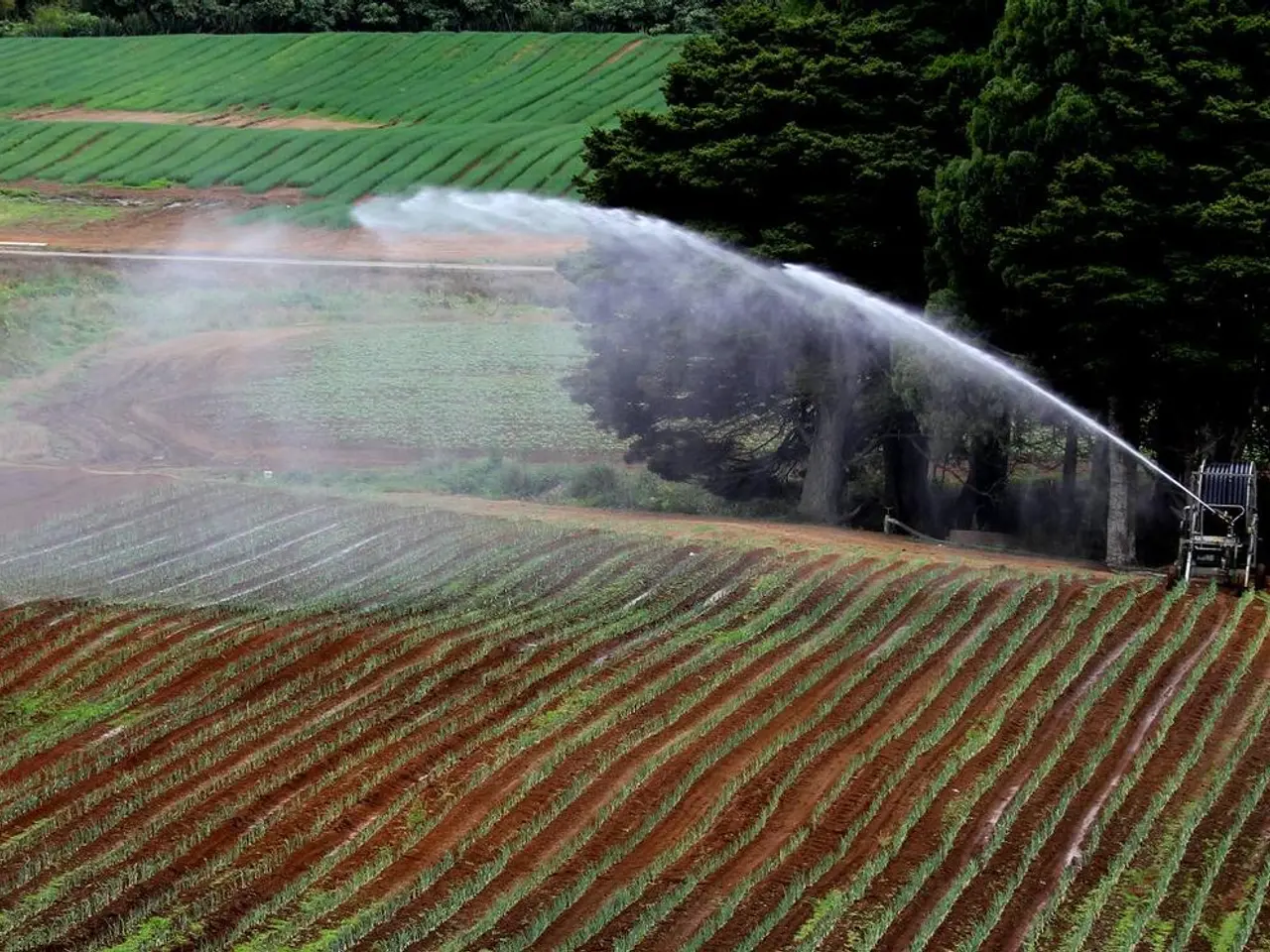Embracing Multidisciplinary Collaboration in Agriculture: A New Era of Growth and Innovation
Agricultural Roles Evolve: The Redefinition of Occupations in Agriculture Due to Artificial Intelligence
The agricultural sector is witnessing a significant transformation as it embraces professionals from diverse fields, including programming, biology, chemistry, physics, and more. This multidisciplinary approach is revolutionising farming practices, reshaping the skillset required within the industry, and opening up a world of opportunities.
Driving Innovation across the Agricultural Value Chain
The integration of technology is reshaping agriculture, with advancements in areas such as AI-driven platforms, IoT devices, cloud computing, and big data analytics leading to the creation of "smart farms." These innovations optimise farming practices by automating tasks, providing real-time monitoring, and enabling predictive analytics for irrigation, fertilization, pest control, and market intelligence [1][3].
In the realm of biology and chemistry, advances in genomic crop improvement are enabling higher yields, better nutrition, and climate resilience. The development of biological inputs and alternative weed control methods is also gaining traction as substitutes for traditional chemical solutions, demanding deep expertise in molecular biology, biochemistry, and plant science [1][2].
Physics and engineering play a crucial role in the deployment of robotics, autonomous machinery, and sensor networks. Satellite and drone technologies, for instance, provide critical data for precision agriculture, requiring knowledge of remote sensing, materials science, and mechanical design [1][5].
Transforming Workforce Requirements
The future agricultural workforce is evolving to encompass hybrid roles that blend traditional agronomic knowledge with technological proficiency. New job profiles are emerging, such as data analysts, AI specialists, drone operators, and fleet managers, who can bridge the gap between agriculture and technology [3].
Workers must now be agile, comfortable with rapidly evolving tools, and capable of interpreting complex data streams to make informed decisions in real time [3]. Collaborative ecosystems, supported by both government initiatives and private investment, are thriving in the agtech startup landscape [3].
Enhancing Sustainability and Efficiency
The integration of technology is enabling the development of precision farming platforms that minimise resource waste, such as water, fertilizers, and pesticides, through automation and sensor-driven insights [1][3]. This approach supports compliance with stringent regulations, promotes ecological balance, and reduces the environmental footprint of farming [3][4].
Digital platforms and e-commerce solutions, powered by cross-disciplinary expertise, are streamlining procurement and distribution, making supply chains more transparent and efficient [1].
Challenges and Opportunities
The sector must adapt its education and training systems to produce professionals with both domain-specific and cross-cutting skills. Effective collaboration across disciplines requires clear communication channels and shared goals, which can be challenging in traditionally siloed industries [3].
The entry of tech-savvy professionals lowers barriers in digital and advisory services, increasing competition and innovation, especially in areas like biologicals and precision agriculture [2]. High costs and unclear return on investment are the biggest challenges for North American farmers in adopting farm management systems [4].
Conclusion
The integration of professionals from programming, biology, chemistry, physics, and related fields is propelling agriculture into a new era of efficiency, sustainability, and innovation. This convergence not only demands a more versatile and tech-literate workforce but also creates opportunities for groundbreaking solutions to global food security and environmental challenges. The future of agtech lies in its ability to harness this multidisciplinary expertise, transforming every aspect of agriculture—from the field to the market [1][3][5].
Despite challenges, the demand for digitally skilled agricultural workers is on the rise. The drone industry, for example, is projected to contribute over $82 billion to the U.S. economy by 2025 and create around 100,000 new jobs [4]. The agriculture industry is undergoing a complex transformation due to AI and automation, with the focus shifting from replacement of human workers to redefinition [4]. The shortage of qualified and educated personnel is more about the changing nature of the profession and the emergence of new specializations than a genuine lack of people [4].
Asia currently has the lowest rate of agtech adoption, with only about 9% of farmers using or planning to use at least one agtech product [4]. In contrast, approximately 61% of farmers in Europe and North America are currently using or planning to adopt one agtech product in the next two years [4]. The US Bureau of Labor Statistics projects an 8% growth in employment for agricultural and food scientists from 2023 to 2033, a rate faster than the average for all occupations [4]. The majority of farm managers in Europe are over 55 years old, while young farmers make up only 11.9% [4]. The role of an agronomist today involves having a deep understanding of a specific plant's biology and making decisions based on data provided by monitoring systems [4]. Agriculture is becoming more specialised, with technology taking over tasks previously done by agronomists, such as monitoring soil and water quality, and climate analysis [4].
The integration of technology is driving innovations across the agricultural value chain, resulting in the development of "smart farms" that optimize farming practices through AI-driven platforms, IoT devices, cloud computing, and big data analytics [1][3].
In the evolving agricultural workforce, new job profiles are emerging that blend traditional agronomic knowledge with technological proficiency, such as data analysts, AI specialists, drone operators, and fleet managers [3].




